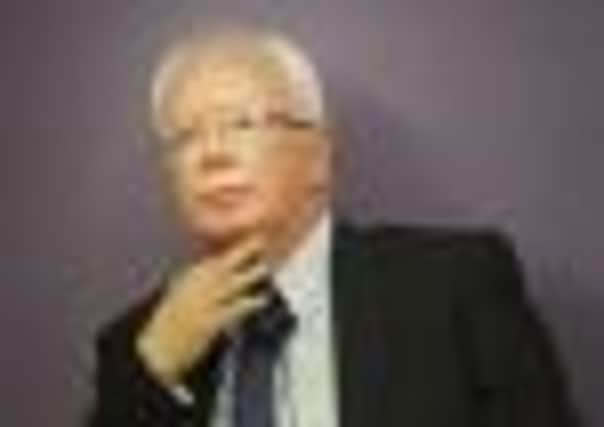Independent Scots would have to apply to rejoin EU, says Lord Wallace


Advocate General Lord Wallace will claim Scotland’s obligations would be thrown into doubt after independence, with the country “likely” to find itself outside the EU.
The SNP government claims independence would mean that both the UK and Scotland would become “successor” states in Europe, but this will be dismissed by the former deputy first minister today as being against “precedent and common sense” when he delivers the Annual Lecture at the Edinburgh Centre for Constitutional Law.
Advertisement
Hide AdAdvertisement
Hide AdLord Wallace will also state the UK would be recognised by other countries around the world as a “continuing state” if Scotland votes to break away. He will claim that “international legal precedent” indicates the UK would remain bound by the 14,000 international treaties it is currently signed up to.
The Russian Federation was recognised as the continuation of the Soviet Union after the collapse of communism, he will say, while the UK also continued to exist after the Irish Free State was established in 1922.
It means Scotland would have to negotiate its way back into the EU and may be forced to adopt the troubled euro currency and accept the EU’s “open borders” policy which the UK is exempt from. The speech comes a fortnight after EU President Jose Manuel Barroso warned that all new states would have to apply for membership.
The Liberal Democrat peer will also step up the pressure on the Scottish Government to come clean about the legal advice it has received on the issue, rubbishing Alex Salmond’s claims that he is prevented from doing so.
Lord Wallace will say: “The more likely conclusion – and the one which people must weigh in the balance before casting their vote – is that the UK would carry on with its international obligations, including EU membership as at present.
“And the likely consequence is that Scotland would have to apply to join the EU. If it joined the EU, it would do so on terms, and it is those terms which would create considerable uncertainty about the future of Scotland outside the UK.”
The Edinburgh Centre for Constitutional Law is based at Edinburgh University and its director Professor Stephen Tierney was recently appointed an adviser to the First Minister to ensure the 2014 referendum meets international standards.
A Scottish Government spokeswoman said: “An independent Scotland will continue in EU membership inheriting the same treaty rights and obligations as the rest of the UK. By definition Scotland already meets the criteria for EU membership, as acknowledged just last week by an expert report.
Advertisement
Hide AdAdvertisement
Hide Ad“As many legal and constitutional experts have confirmed, Scotland is part of the territory of the European Union and the people of Scotland are citizens of the EU – there is no provision for either of these circumstances to change upon independence, and the rest of the UK will be exactly the same position.”